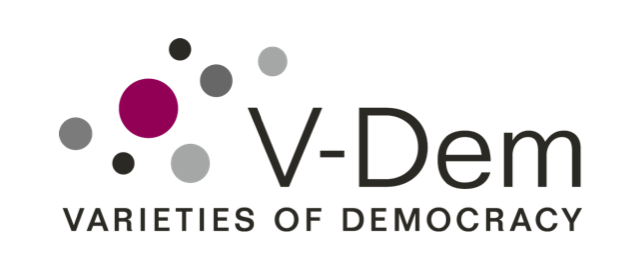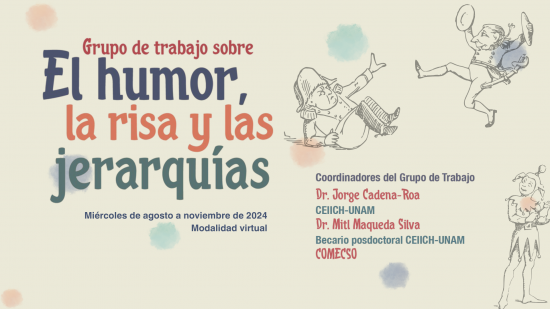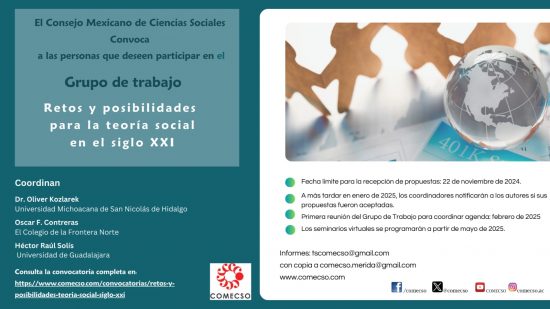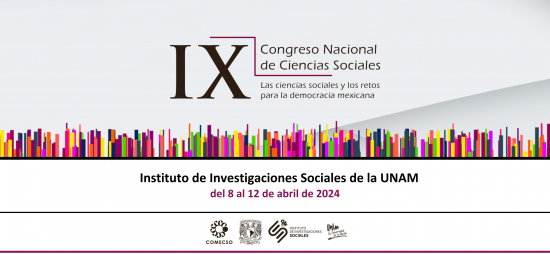Varieties of Democracy (V-Dem)
About V-Dem
Varieties of Democracy (V-Dem) is a new approach to conceptualizing and measuring democracy. We provide a multidimensional and disaggregated dataset that reflects the complexity of the concept of democracy as a system of rule that goes beyond the simple presence of elections. The V-Dem project distinguishes between seven high-level principles of democracy: electoral, liberal, participatory, deliberative, egalitarian, majoritarian and consensual, and collects data to measure these principles.
It is a collaboration among more than 50 scholars worldwide which is co-hosted by the Department of Political Science at the University of Gothenburg, Sweden; and the Kellogg Institute at the University of Notre Dame, USA. With four Principal Investigators (PIs), fifteen Project Managers (PMs) with special responsibility for issue areas, more than thirty Regional Managers (RMs), 170 Country Coordinators (CCs), Research Assistants, and 2,800 Country Experts (CEs), the V-Dem project is one of the largest social science data collection projects focusing on research.
Brief information about V-Dem can be found here: Varieties of Democracy Brief.
V-Dem Project released a new and even larger version of the democracy dataset, now covering 17 million data points on democracy and 177 countries in the world up to 2016.
V-Dem’s data is becoming the leading source of information on democracy used by scholars, as well as organizations, such as the World Bank, Transparency International, UNDP, European Commission, Mo Ibrahim Foundation, the Resource Governance Institute, International IDEA, as well as numerous NGOs around the world.
The dataset contains over 350 unique and disaggregated democracy indicators, more than 40 mid-level indices, and 5 high-level indices (electoral, liberal, participatory, deliberative and egalitarian democracy) from 1900 to 2016.
Overview of V-Dem Dataset V7:
- Dataset is available as Country-Year: V-Dem; Country-Year: V-Dem + other; Country-Date: V-Dem.
- 177 Countries covered
- New indices and indicators added in this version
- Dataset is free and available for download in the following formats: SPSS, STATA, STATA-IC, CSV and EXCEL
Te puede interesar

Publicaciones del COMECSO
comecso - Dic 04, 2024Este espacio reúne la gran mayoría de la producción editorial de nuestra asociación. A lo largo de casi cinco décadas,…
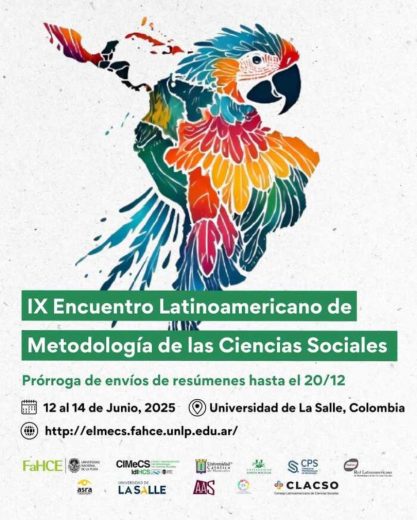
IX Encuentro Latinoamericano de Metodología de las Ciencias Sociales
Laura Gutiérrez - Dic 11, 2024IX Encuentro Latinoamericano de Metodología de las Ciencias Sociales Indisciplinar las ciencias sociales. Transformaciones y resistencias en las fronteras metodológicas…
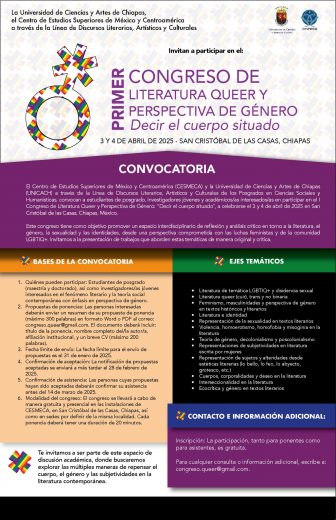
Primer Congreso de Literatura Queer y Perspectivas de Género: “Decir el cuerpo situado”
Laura Gutiérrez - Dic 11, 2024La Universidad de Ciencias y Artes de Chiapas, el Centro de Estudios Superiores de México y Centroamérica a través de…

Postdoctoral Research Fellowships
Laura Gutiérrez - Dic 11, 2024University of California Alianza MX Postdoctoral Research Fellowships 2025 Pilot Program Deadline: March 31, 2025 The University of California Alianza…
